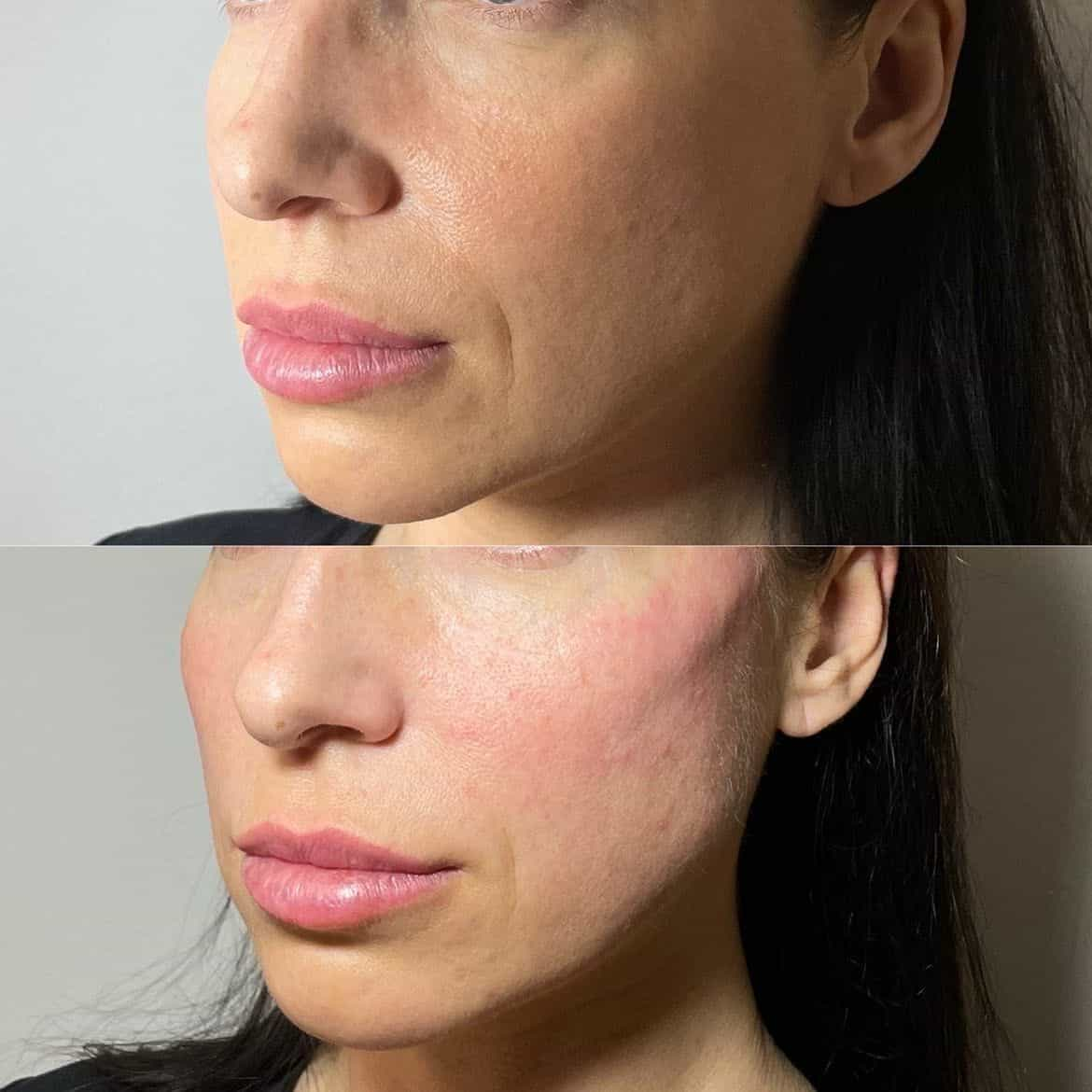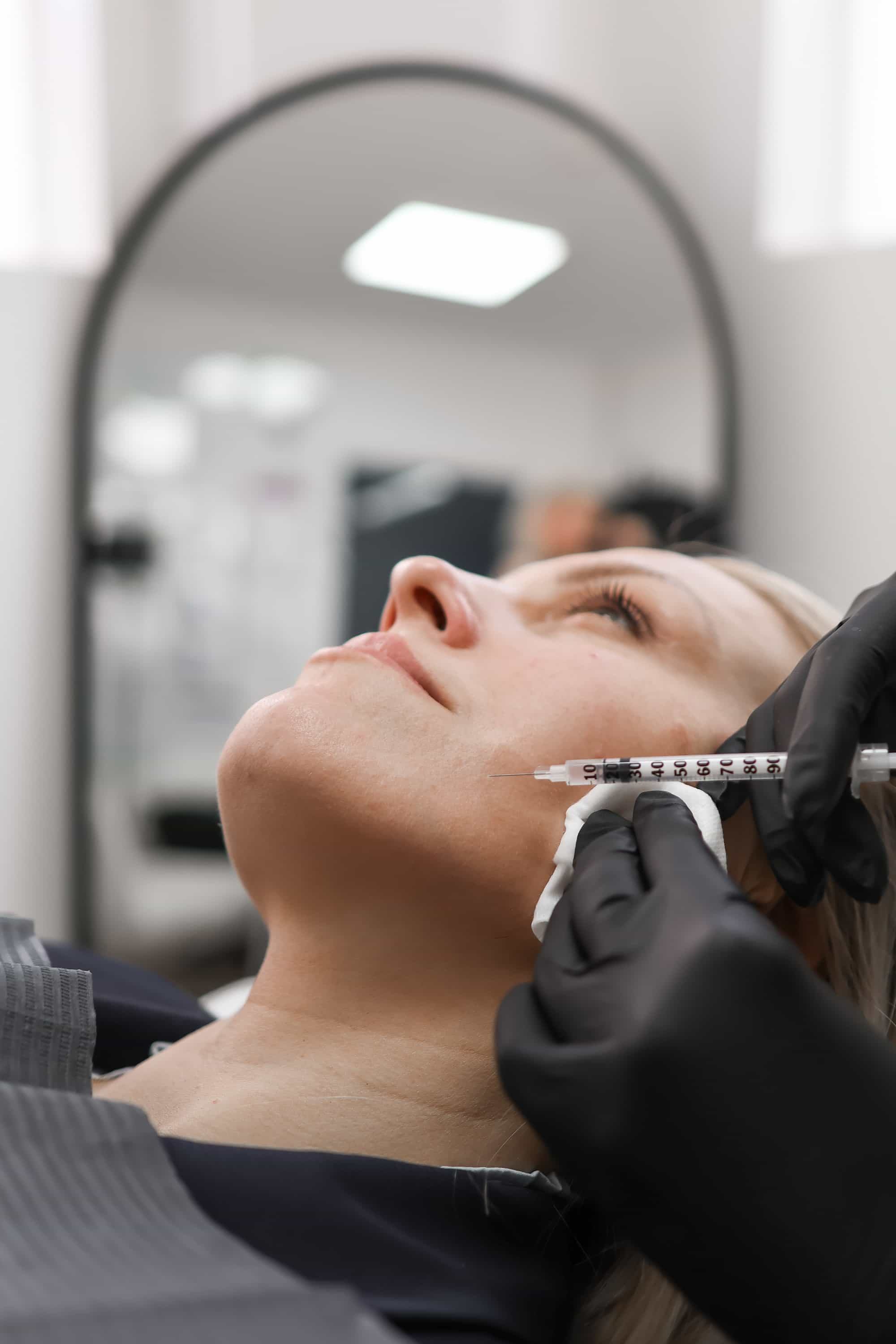Fixing a Downturned Smile
A downturned smile, often accompanied by feelings of sadness or melancholy, can have a profound impact on confidence and self-esteem. While genetics and facial structure play a role, there are steps individuals can take to address this issue and regain a more positive and inviting expression.
Understanding the Causes
Understanding the causes behind a downturned smile is crucial for finding effective solutions. Sometimes, it’s due to muscular imbalances or habitual expressions that pull the corners of the mouth downwards. Stress, anxiety, and even certain medical conditions can also contribute to this facial feature.
Addressing these underlying causes is key to restoring a more confident and uplifting smile. Techniques like facial exercises, massage therapy, and cognitive behavioral therapy can help alleviate muscle tension and retrain habitual expressions.
In some cases, cosmetic treatments such as Botox injections or dermal fillers may be considered to temporarily lift the corners of the mouth.
Genetics and Facial Structure
Genetics and facial structure undoubtedly influence the shape of our smiles. Some individuals are naturally predisposed to a downturned expression due to the angle of their jawline, the position of their lip muscles, or the length of their facial features. While these factors cannot be altered, it’s important to remember that perception plays a significant role in how we perceive ourselves and how others perceive us.
Focusing on what can be controlled, such as posture, facial expressions, and overall mood, can make a surprising difference. Maintaining good posture can help lift the face and create a more open and approachable expression. Consciously practicing smiling, even when you don’t feel like it, can train your facial muscles to move in a more positive direction.
Muscle Habits
Understanding the causes behind a downturned smile is crucial for finding effective solutions. Sometimes, it’s due to muscular imbalances or habitual expressions that pull the corners of the mouth downwards. Stress, anxiety, and even certain medical conditions can also contribute to this facial feature.
Addressing these underlying causes is key to restoring a more confident and uplifting smile. Techniques like facial exercises, massage therapy, and cognitive behavioral therapy can help alleviate muscle tension and retrain habitual expressions.
In some cases, cosmetic treatments such as Botox injections or dermal fillers may be considered to temporarily lift the corners of the mouth.
Genetics and facial structure undoubtedly influence the shape of our smiles. Some individuals are naturally predisposed to a downturned expression due to the angle of their jawline, the position of their lip muscles, or the length of their facial features. While these factors cannot be altered, it’s important to remember that perception plays a significant role in how we perceive ourselves and how others perceive us.
Focusing on what can be controlled, such as posture, facial expressions, and overall mood, can make a surprising difference. Maintaining good posture can help lift the face and create a more open and approachable expression. Consciously practicing smiling, even when you don’t feel like it, can train your facial muscles to move in a more positive direction.
Lifestyle Factors
While genetics and facial structure play a role in smile shape, lifestyle factors significantly impact how our smiles appear and the confidence they convey. Stress, anxiety, and poor posture can contribute to a downturned appearance, making us appear less approachable and hindering self-confidence.
Managing stress through practices like meditation, yoga, or exercise can positively impact facial muscles and overall well-being. Similarly, maintaining good posture encourages an upward lift in the face, instantly brightening the expression.
Cultivating a positive mindset and practicing genuine smiles, even during challenging times, can retrain facial muscles and create a more inviting expression over time. Remember, confidence often stems from how we perceive ourselves, so focusing on these controllable lifestyle factors can lead to a more confident and uplifting smile.
Non-Invasive Solutions
A downturned smile can impact confidence and self-esteem. Understanding the causes is crucial for finding effective solutions.
Facial Exercises
Facial exercises offer a non-invasive approach to potentially addressing a downturned smile.
These exercises target the facial muscles responsible for lifting the corners of the mouth, aiming to improve muscle tone and strength. By consistently performing these exercises, individuals may notice subtle but noticeable improvements in their smile over time.
Smile Stretchers
Smile stretchers are non-invasive devices designed to help improve the appearance of a downturned smile. These devices typically consist of a flexible band or strap that is placed over the upper and lower teeth, gently pulling the corners of the mouth upwards.

By using a smile stretcher regularly for short periods each day, users aim to stretch and strengthen the facial muscles responsible for smiling. Over time, this consistent stretching may lead to a more uplifted and positive expression.
Jaw Relaxing Techniques
A downturned smile can impact confidence and self-esteem. Understanding the causes is crucial for finding effective solutions.
Facial exercises offer a non-invasive approach to potentially addressing a downturned smile.
These exercises target the facial muscles responsible for lifting the corners of the mouth, aiming to improve muscle tone and strength. By consistently performing these exercises, individuals may notice subtle but noticeable improvements in their smile over time.
Smile stretchers are non-invasive devices designed to help improve the appearance of a downturned smile. These devices typically consist of a flexible band or strap that is placed over the upper and lower teeth, gently pulling the corners of the mouth upwards.
By using a smile stretcher regularly for short periods each day, users aim to stretch and strengthen the facial muscles responsible for smiling. Over time, this consistent stretching may lead to a more uplifted and positive expression.

Cosmetic Treatments
A downturned smile can impact confidence and self-esteem. Understanding the causes is crucial for finding effective solutions.
Facial exercises offer a non-invasive approach to potentially addressing a downturned smile.
- These exercises target the facial muscles responsible for lifting the corners of the mouth, aiming to improve muscle tone and strength.
- By consistently performing these exercises, individuals may notice subtle but noticeable improvements in their smile over time.
Smile stretchers are non-invasive devices designed to help improve the appearance of a downturned smile.
- These devices typically consist of a flexible band or strap that is placed over the upper and lower teeth, gently pulling the corners of the mouth upwards.
- By using a smile stretcher regularly for short periods each day, users aim to stretch and strengthen the facial muscles responsible for smiling.
- Over time, this consistent stretching may lead to a more uplifted and positive expression.
Botox Injections
Botox injections are a popular non-invasive option for addressing a downturned smile. During the procedure, a small amount of botulinum toxin is injected into specific muscles responsible for pulling the corners of the mouth downwards.
The toxin temporarily paralyzes these muscles, allowing them to relax and lift the corners of the mouth, creating a more cheerful and inviting appearance. The effects of Botox typically last for several months, gradually wearing off over time.
Dermal Fillers
Dermal fillers offer another non-invasive solution to enhance a downturned smile. These injectable gels are made from hyaluronic acid, a substance naturally found in the skin that helps maintain its volume and elasticity.
Dermal fillers can be strategically placed beneath the surface of the skin along the lines of the mouth, subtly lifting the corners and restoring a more youthful and balanced appearance.
The results of dermal filler injections are typically noticeable immediately and can last for several months to a year, depending on individual factors.
Surgical Options
Surgical options can be considered in cases where non-invasive treatments haven’t achieved the desired results or when addressing significant structural imbalances contributing to the downturned smile.
Lip Lift Surgery
Lip lift surgery is a procedure that shortens the distance between the nose and the upper lip, effectively raising the upper lip and improving the appearance of a downturned smile.
This surgical option can create a more youthful and balanced facial profile by altering the proportions of the face and enhancing the visibility of teeth when smiling.

Brow Lift Surgery
Surgical options can be considered in cases where non-invasive treatments haven’t achieved the desired results or when addressing significant structural imbalances contributing to the downturned smile.
Brow lift surgery, also known as forehead lift, can indirectly address a downturned smile by lifting the brows and creating a more open and youthful appearance. When the brows are lifted, they naturally counteract the downward pull of facial muscles that contribute to a downturned smile.
- Lip lift surgery is a procedure that shortens the distance between the nose and the upper lip, effectively raising the upper lip and improving the appearance of a downturned smile.
- This surgical option can create a more youthful and balanced facial profile by altering the proportions of the face and enhancing the visibility of teeth when smiling.
Book your smile enhancement consultation with Dr. Laura Geige at It’s Me & You Clinic.
- How To Restore Your Confidence By Fixing A Downturned Smile - May 16, 2025
- The Intersectionality Of Race, Gender, And Sexual Orientation - May 16, 2025
- How Cannabis Sodas Are Taking Over The Craft Drink Scene - May 15, 2025
